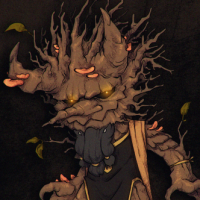Howdy, Stranger!
Categories
- 3.7K All Categories
- 3K The Midnight Age
- 757 Announce posts
- 125 Newbies
- 6 Class Guides
- 805 Harpy's Head Tavern
- 57 Echo Canyon
- 310 Self-Affirmations
- 163 Town Crier
- 135 The Exchange
- 167 Sparring Grounds
- Combat Guides
- 30 Combat Logs
- 188 Idea Box
- 9 Classleads
- 581 Roleplay Logs
- 107 Aetolia Development
- 5 The Void
- 744 Miscellaneous
- 9 Announcements
- 417 OOC Chat
- 217 Tech Talk
- 47 Scripts
Looking for more active discussion? Join our Discord at https://discord.gg/x2s7fY6
Events post #300: The Black Rose Blossoms Anew
5/15/2022 at 2:16
Anonymous
Everyone
The Black Rose Blossoms Anew
After the tumultuous Revelations brought about by Niuri-then-Lexadhra, Sapience enjoyed a period of relative quiet, with no resurrected Gods or world-ending apocalyptic threats rising to the fore. Yet while most thought the Elders dead and gone, remaining only in the memories of the Indelible, others were not so convinced.
Under the leadership of a Nazetu man by the name of Onoche, a cult to Nalibhtavi, the Replete, formed in secret, meeting in the Forgotten Warrens which had, following Ilario's departure, been left abandoned and seldom visited. The cult first made themselves known by bombarding adventurers with propaganda in the form of pink letters, each heavily laced with sweet perfume and bearing feverish, albeit somewhat obscure, exhortations in the name of the Full One. The missives went as far as to prophesy the return of the widely-loathed divinity, urging readers to cast aside their morals and follow Her command: Live like a God, hate like a Demon.
While this caused something of a stir among those familiar with Lady Hedonism, most dismissed the writings as nonsensical garbage and went about their lives. Escalation came in the form of sacrifice - cultists gave their lives in droves to sanctify shrines they had raised across the land, encroaching into Jaru, Tainhelm, Nuunva, Kornar, and even Duiran and Bloodloch proper. Adventurers were quick to abjure the name of Nalibhtavi, eventually sundering the shrines to dust with taxing effort.
Some panicked at the existence of such resilient altars, though consultation with the Indelible made clear Her opinion that Nalibhtavi was both long dead and unable to be resurrected. Lexadhra posited that the shrines were too gawdy for Hedonism's tastes, and that, while strong, they were merely mortal constructions.
Onoche ventured out into the world then, inviting all and sundry to attend a sermon. Daring to host the event in Djeir, within the Theater of Shadows itself, the Nazetu cultist extolled the Full One's virtues and - again - promised Her imminent return. Many attended with interest. Almost all left with scorn. Haratos, outraged by the gall of the man and still grief-stricken from the Goddess' maddened massacre, destroyed the shrine in Djeir himself, and resolved to visit the same fate upon the cultists that Nalibhtavi had brought down on his Bards.
Alone he ventured to the Memoryscape, bringing to bear all his guile and experience in order to conquer Oblivion's Portent. There, he heard the voices of the dying Arboreans, united in the doleful hymn that is Oblivion's Song. Long had the hymn been lost to the modern incarnation of the Eminent Ensemble, and the Master Bard keenly practised its notes.
A week later, following boisterous shouting and zealous proclamations from Onoche, Haratos, sundering yet more shrines on his way out of the Undercity, travelled north. Into the Forgotten Warrens he went, rousing the cultists to alarm. Oblivion's Song came to his lips and he sung with all his heart, all his malice, all his grief and sorrow and strife and sadness at what the Goddess Nalibhtavi had taken from him.
The song reached its zenith. And the cult began to die. One by one the notes ensnared them like a malefic curse, claiming their lives in the dramatic throes of a master's epic performance. The Warrens were not spared from the Bard's wrath, shattered and broken by the terrible verses, they collapsed in on themselves, leaving naught but dust and buried corpses behind.
In the wake of his trumph, the dramaturge vowed to recreate the ancient Djeirani tradition, extending invitations to outsiders to become his apprentices.
Penned by my hand on Kinsday, the 4th of Lleian, in the year 502 MA.
Anonymous
Everyone
The Black Rose Blossoms Anew
After the tumultuous Revelations brought about by Niuri-then-Lexadhra, Sapience enjoyed a period of relative quiet, with no resurrected Gods or world-ending apocalyptic threats rising to the fore. Yet while most thought the Elders dead and gone, remaining only in the memories of the Indelible, others were not so convinced.
Under the leadership of a Nazetu man by the name of Onoche, a cult to Nalibhtavi, the Replete, formed in secret, meeting in the Forgotten Warrens which had, following Ilario's departure, been left abandoned and seldom visited. The cult first made themselves known by bombarding adventurers with propaganda in the form of pink letters, each heavily laced with sweet perfume and bearing feverish, albeit somewhat obscure, exhortations in the name of the Full One. The missives went as far as to prophesy the return of the widely-loathed divinity, urging readers to cast aside their morals and follow Her command: Live like a God, hate like a Demon.
While this caused something of a stir among those familiar with Lady Hedonism, most dismissed the writings as nonsensical garbage and went about their lives. Escalation came in the form of sacrifice - cultists gave their lives in droves to sanctify shrines they had raised across the land, encroaching into Jaru, Tainhelm, Nuunva, Kornar, and even Duiran and Bloodloch proper. Adventurers were quick to abjure the name of Nalibhtavi, eventually sundering the shrines to dust with taxing effort.
Some panicked at the existence of such resilient altars, though consultation with the Indelible made clear Her opinion that Nalibhtavi was both long dead and unable to be resurrected. Lexadhra posited that the shrines were too gawdy for Hedonism's tastes, and that, while strong, they were merely mortal constructions.
Onoche ventured out into the world then, inviting all and sundry to attend a sermon. Daring to host the event in Djeir, within the Theater of Shadows itself, the Nazetu cultist extolled the Full One's virtues and - again - promised Her imminent return. Many attended with interest. Almost all left with scorn. Haratos, outraged by the gall of the man and still grief-stricken from the Goddess' maddened massacre, destroyed the shrine in Djeir himself, and resolved to visit the same fate upon the cultists that Nalibhtavi had brought down on his Bards.
Alone he ventured to the Memoryscape, bringing to bear all his guile and experience in order to conquer Oblivion's Portent. There, he heard the voices of the dying Arboreans, united in the doleful hymn that is Oblivion's Song. Long had the hymn been lost to the modern incarnation of the Eminent Ensemble, and the Master Bard keenly practised its notes.
A week later, following boisterous shouting and zealous proclamations from Onoche, Haratos, sundering yet more shrines on his way out of the Undercity, travelled north. Into the Forgotten Warrens he went, rousing the cultists to alarm. Oblivion's Song came to his lips and he sung with all his heart, all his malice, all his grief and sorrow and strife and sadness at what the Goddess Nalibhtavi had taken from him.
The song reached its zenith. And the cult began to die. One by one the notes ensnared them like a malefic curse, claiming their lives in the dramatic throes of a master's epic performance. The Warrens were not spared from the Bard's wrath, shattered and broken by the terrible verses, they collapsed in on themselves, leaving naught but dust and buried corpses behind.
In the wake of his trumph, the dramaturge vowed to recreate the ancient Djeirani tradition, extending invitations to outsiders to become his apprentices.
Penned by my hand on Kinsday, the 4th of Lleian, in the year 502 MA.
4




